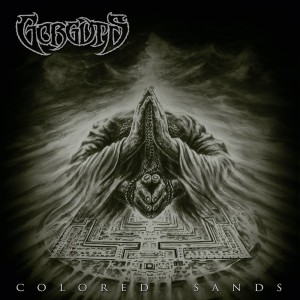This review was contributed to Death Metal Underground by Neil Sigmundsson.
The best albums are greater than the sum of their parts and provide the capability for listener immersion due to their length and integration but the song is still generally the most important and most fundamental compositional unit in death metal. Paying too much attention to atmosphere, musicianship, individual riffs, or other aesthetical and shallow (though important) qualities of an album can lead to overlooking compositional shortcomings, especially after the mind starts to fatigue or when listening to dense material. This is the case with Doomed Passages, which feels convincing – and in some aspects it is – but suffers from a number of flaws that might be missed during casual listening. That being said, even though the music of Question is imperfect, it is modest and sincere and at its best moments overflows with contagious vigor and energy that leaps fearlessly towards the abyss, a mark of the upper echelons of death metal artists.
First, praise is due to some of the mechanical and aesthetical elements of this album. The roaring, expressive vocals, replete with various single-syllable exclamations and grunts, are highly enjoyable and benefit from a cavernous quality due to studio-induced reverb. The drums are commendable in their creativity and in demonstrating a subtle understanding of the level of activity that best complements any given situation. Rumbling double bass creates a “rolling” sensation of high momentum at certain tempi. The production is deep and clear, and has a bit of cushion, but more separation between the instruments might have been beneficial.
There are two truly excellent songs on Doomed Passages: the second and fifth tracks. “Nefarious Conclusion” is the most structurally rigorous composition on the album, being basically linear but still having a clear exposition, rising action, climax, and falling action. This results in a rewarding experience. 0:00-0:50 is an example of creating variation, exploration, and motion out of a single phrase. The drum build-up to the invigorating climactic riff is genius; it sounds like transitioning from walking to running. The transitions at 1:15 and 4:34 are somewhat rough, but not enough to harm the composition. “Universal Path of Disgrace” has one of the most memorable riffs on the album, a sprawling eight bar tremolo-picked cycle. After the second occurrence of this riff and its accomplice, the song heads logically into a strange middle section that sounds like being in an unstable, slightly psychedelic limbo. A climax and resolution emerge from there. This song offers an interesting journey but it is slightly less satisfying than “Nefarious Conclusion.”
Aside from these two tracks, the remainder of the material on Doomed Passages shows promise and has shining moments but suffers from various problems. Some of these issues are abrupt transitions (“Mournful Stench” at 3:35), weak conclusions (“Devoured from Within”), and segments that overstay their welcome (the introduction of “…Bitter Gleam of Inexistence”). However, the major recurring problem and the biggest downfall of Question, though it is not immediately apparent due to the large number of riffs (many of which sound similar), is the purposeless, wandering song structures. In their template, Question take a single riff or a small group of riffs that act as an “anchor,” and they dance a bunch of ideas around that anchor before departing in an uncertain, random direction. This resembles a very relaxed version of what Slayer pioneered on tracks like “At Dawn They Sleep,” which completes two verse-chorus cycles and then departs radically from pop structure. The difference – and it’s a significant difference – is that Slayer maintained a strong narrative and a sense of purpose and tension throughout the entirety of their songs, whereas Question is usually content with wandering aimlessly. That Question can string a huge number of riffs together without the result sounding like patchwork is impressive (see “Grey Sorrow”), but cohesion alone does not make death metal of lasting quality, and as a result an appreciable amount of this material feels pointless and is frustrating to endure.
As hinted at above, there are simply too many riffs on Doomed Passages, a large proportion of which are interchangeable and forgettable, appear only once, and serve no vital function. Question demonstrate that they know how to overcome this problem in multiple ways (developing phrases, relating riffs through common or similar phrases, writing highly memorable riffs, returning to previous ideas in different contexts, etc.), but they need to apply these habits more diligently. There are focused passages, and there are highly memorable riffs, but ideally all of the passages should be focused and all of the riffs memorable and necessary. Thus, whereas many death metal bands have simplified their song structures to the detriment of the music, Question can actually benefit from being somewhat more repetitive in order to remove the forgettable and less evocative riffs and develop only their best and darkest ideas. This can be done while retaining the narrative, exploratory song structures. It will occurs more naturally and easily when the music is written and played with specific purpose and direction. More dynamics might also help in stressing important sections, as the sound sometimes blends into a monotonous stream. The digital, compressed production is of no help.
Another lesser issue with Doomed Passages is that consonance sometimes feels out of place when it appears in the midst of the generally dissonant and chromatic music. The interlude “Through the Vacuous River” is the most blatant offender, though the riff at 5:28 of “Universal Path of Disgrace” is questionable as well. While consonance is not vital for this music to express something meaningful, there is potential in its skillful application, as demonstrated by 3:00-3:35 of “Mournful Stench,” a section that arises at an appropriate time but is unfortunately not fully developed. The acoustic final track also works fairly well in context. If Question would hone their skills at incorporating consonance into their musical language, the wider range of expression will provide them with more tools for communication.
The standout songs on this album prove that Question is capable of writing intense and adventurous narrative death metal of the highest caliber. All of the tracks have redeemable and enjoyable qualities and marks of skilled craftsmanship, but most are hampered by the flaws discussed above. To further improve their already above average music, Question need to at least scrap the forgettable riffs and instead develop more extensively their best ideas while taking the reins and writing more directed and focused compositions. The second change can be realized either by forcing the songs to move toward clear climaxes and satisfying conclusions or by finding some wisdom and inspiration that can be represented in and communicated through the music. These young musicians are certainly technically proficient but need to write more coherent compositions if they want to inspirit their music instead of joining the ranks of so many other failed techdeath endeavors.
Readers may listen to Doomed Passages on Chaos Record’s Bandcamp page.
10 CommentsTags: 2014, Chaos Records, mexico, modern metal, musical analysis, question, review, tech-deth, techdeaf, techdeath, Technical Death Metal, tek-deth
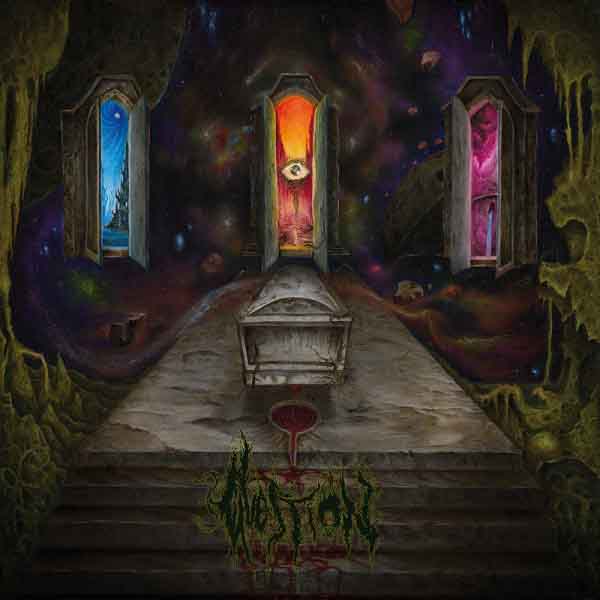
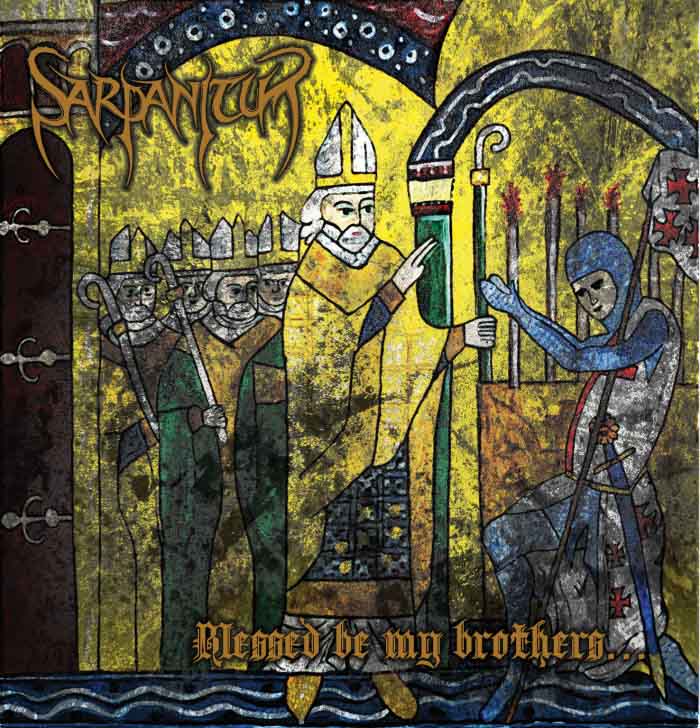
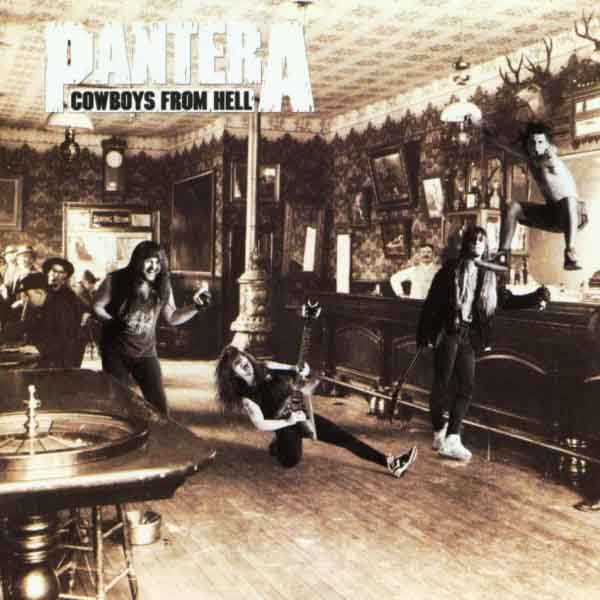
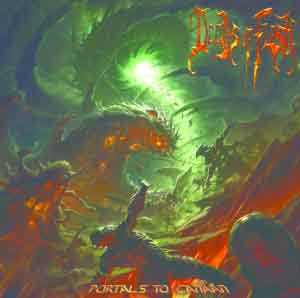
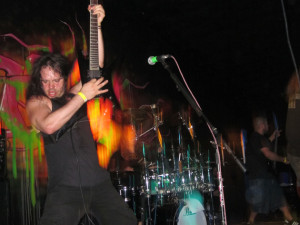 Originating from Kansas in 1998,
Originating from Kansas in 1998, 